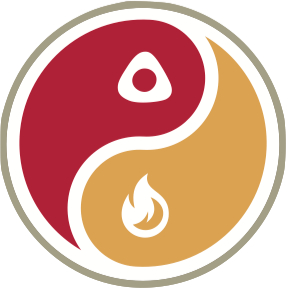Killjoy vs. Freak Flag
I read a recent story by Julia Llewellyn Smith about John Yudkin, an early proponent of the theory that sugar (not fat) is likely to be the main culprit behind many modern diseases. It contained the following paragraph:
“One of the problems with the anti-sugar message — then and now — is how depressing it is. The substance is so much part of our culture, that to be told buying children an ice cream may be tantamount to poisoning them, is most unwelcome. But Yudkin, who grew up in dire poverty in east London and went on to win a scholarship to Cambridge, was no killjoy. “He didn’t ban sugar from his house, and certainly didn’t deprive his grandchildren of ice cream or cake,” recalls his granddaughter, Ruth, a psychotherapist. “He was hugely fun-loving and would never have wanted to be deprived of a pleasure, partly, perhaps, because he grew up in poverty and had worked so hard to escape that level of deprivation.””
While I am glad that such stories are gaining prominence, I object to the idea that saying no to ice cream, or keeping a sugar-free household makes one a killjoy.
If it were shown that the link between routine sugar consumption and heart attacks or Alzheimer’s or breast cancer was, for example, even a fraction as strong as that between smoking and lung cancer, would you feel that turning down a piece of cake, or not keeping ice cream in the house, indicated insufficient desire for and approval of pleasure? Or contrary-wise, if you went to live in a place where children were normally given a cigarette after supper, would you just let it go in the name of good fun? Such a strong link has yet to be shown, but the body of evidence of such links has increased.
I contrast this idea with an essay by Kurt Harris a few years ago, containing this passage:
“When you go to the birthday party for your neighbor’s kid, and you eat the birthday cake, what message does that send?
You show up looking trim and fit. You are pleased if people ask you how you lost weight. After eating this way for a few years, though, you are perhaps most comfortable if no one says anything at all.
You are weary of the reactions -the incredulity, the mockery, the eye-rolling. Pushing 50, you’ve tried explaining how a diet high in animal fats and low in grains works to keep you slim, but you’ve learned that the segue to explaining why you are not just cultivating an attractive corpse due to all that arterycloggingsaturatedfat that you live on is tedious and it gets you nowhere.
So, when the rectangular slab of Hy-Vee or Piggly-Wiggly birthday cake – frosted 3/8” thick with a stratum of oily granular sugar running through the middle to boot – is proferred, you say “thank you”, flash a smile that only a trained psychologist would question, and accept it, holding the flimsy paper plate and plastic fork with both hands to keep it from tumbling onto the ground.
You repair to some corner of the party where you can nibble at the cake, maybe spill a few crumbs, and eventually hide the paper plate, now soggy with vegetable oil absorbed from the corpus of the cake.
Who are the agents of acculturation here?”
[…]
“If you are a vector for cultural change, which way is the arrow pointing?
Wear your Real Food Uniform.
Active Duty.
Fly your freak-flag high.
Say no to the cake.”
Ruth may not have been deprived of sugar in her grandfather’s presence, but perhaps she was deprived of something after all. As Yudkin was the author of a book entitled “Pure, White and Deadly”, I am left wondering at the power of acculturation to affect our choices.
